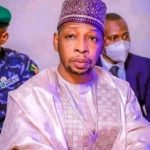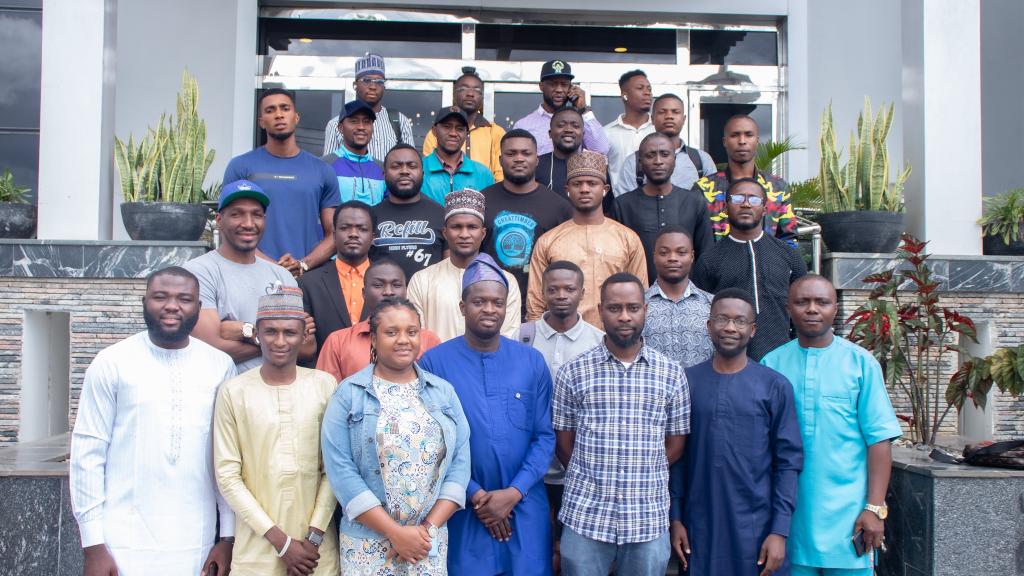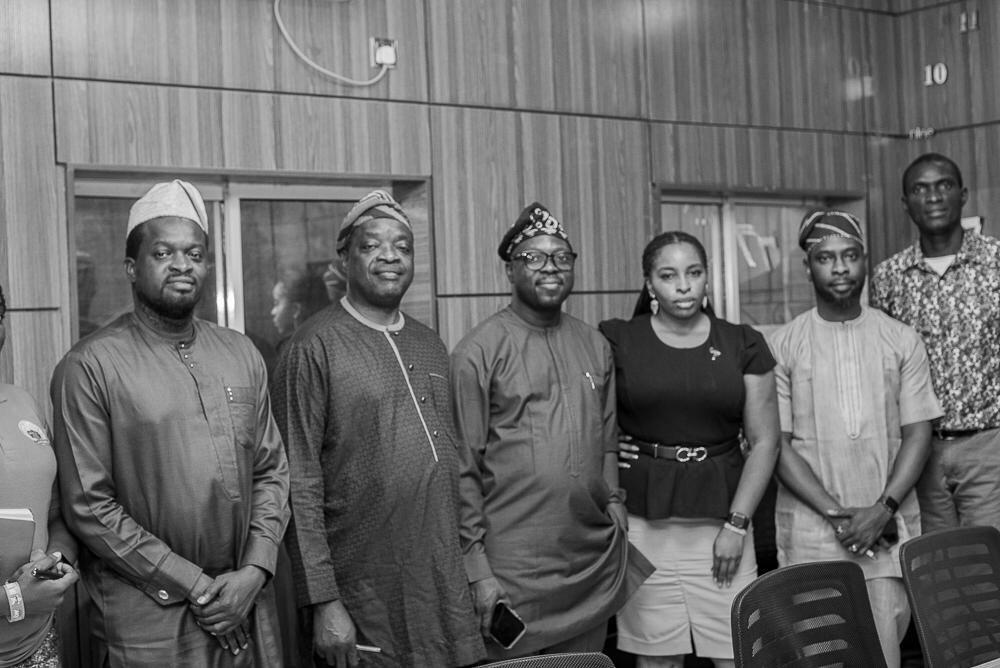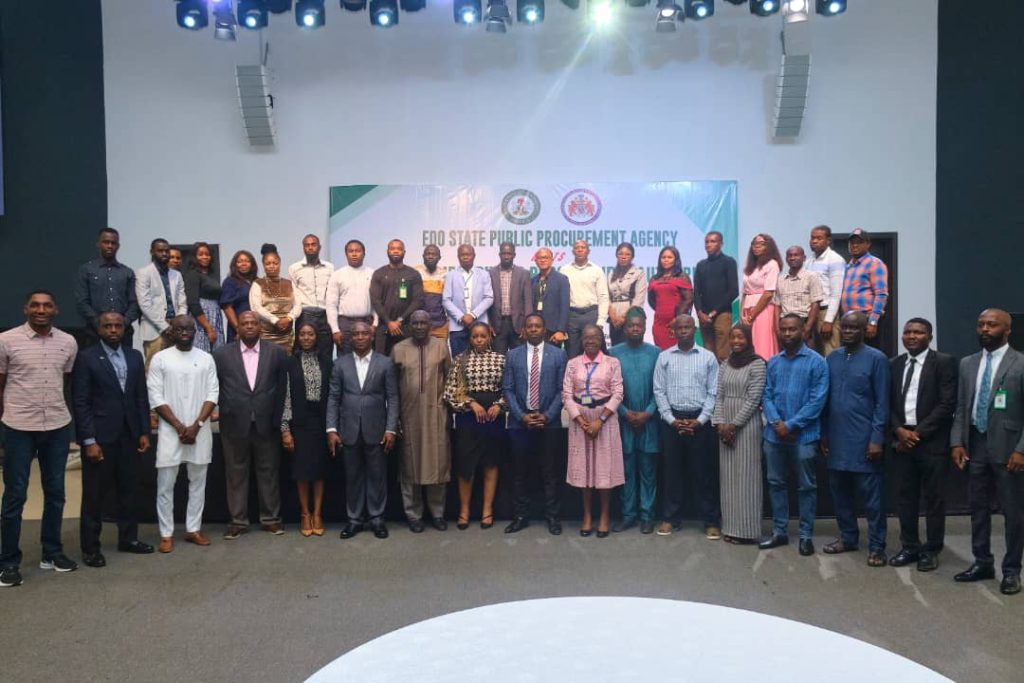*Experts describe oil discovery as spread of national wealth to north
*PENGASSAN expresses satisfaction with FG, NNPC’s war against oil theft
*Nigerian leaders still fixated on natural resources, says Moghalu
Emmanuel Addeh in Abuja and Peter Uzoho in Lagos
The commencement of oil drilling campaign in the north following the presidential flag off of the Kolmani Field Integrated Development Project straddling Bauchi and Gombe States has continued to generate excitements and positive comments from stakeholders in the Nigerian oil and gas industry.
Some of the industry experts, who shared their views with THISDAY, said the successful discovery of oil in the northeast and the swift move by the Nigerian National Petroleum Company Limited (NNPC) and its partners to develop the asset up to production would lead to the spread of the national wealth and economic development to the northern part of the country.
This was just as the Petroleum and Natural Gas Senior Staff Association of Nigeria (PENGASSAN) has given a thumbs up to the federal government, the NNPC and other stakeholders for the efforts taken so far to end the oil theft and vandalism menace in the industry.
The industry experts, who spoke to THISDAY in separate phone chats, included the immediate-past Chairman of the Petroleum Technology Association of Nigeria and marginal field operator, Mr. Bank Anthony Okoroafor; Chief Executive Officer, NCGAP Limited, Mr. Tajudeen Adigun; and the Lagos Zonal Chairman of PENGASSAN, which is made up of the six South-west states and Kwara State, Mr. Eyam Abeng.
The Kolmani River Field, located in-between Bauchi and Gombe States in the Upper Benue trough, has been estimated to hold about one billion barrels crude oil reserve and 500 billion cubic feet of gas deposit.
Also, the Kolmani Integrated Development Project, which has reportedly attracted foreign direct investment (FDI) of about $3 billion already, houses a 120,000-barrels per day refinery, a 500-million standard cubic feet per day gas processing plant, a 300-megawatt capacity power plant, and a fertiliser plant of 2,500 tons per day.
NNPC is developing the field in partnership with the Northern Nigeria Development Company Limited (NNDC), a company owned by the 19 northern states, and the asset operator, Sterling Global, a Nigerian affiliate of the Indian Sandesara Group.
Speaking to THISDAY, Okoroafor, who is the Chief Executive Officer of CB Geophysical Solutions Limited, an oil service firm, described the commencement of the drilling campaign at the Kolmani Field as a good move.
He added that the development of any of the frontier basins was a positive action for Nigeria’s oil and gas reserves’ enhancement as well as the economic growth of country.
“It’s a good move. I think we still need to go ahead and explore the entire frontier basins. We need to ring-fence their budgets to explore them and to develop them. This will assist in getting our reserves to the acceptable levels, and we have to do this quickly as long as fossil fuel is still relevant.
“So, it’s a good progress, forget what anybody says. It’s going to create employment, it’s going to create revenue for goverment, new infrastructure will spring up in that area. So it is positive,” he said.
He noted that since the past decades when investors like the international oil companies (IOCs) were not willing to invest and explore at the frontier areas, the federal government through the NNPC had been the one exploring and footing the bill.
He said those efforts have now resulted in the volume of oil and gas discovered, with the country now, “moving to the development phase, which is positive and I give kudos to the tireless efforts of everybody who has worked very hard to actualise this.”
Okoroafor also commended the strategic development plan, which provided for co-locating a refinery, gas processing plant and other facilities at the field to address the challenge of evacuation and getting greater value from the resources.
According to him, “The key thing is this, if you do not put a power plant or a refinery there, how are you going to evacuate the crude you produce? So this is an integrated development. It has taken care of evacuation which is refining it. If we refine it, we can provide petrol and diesel to the entire north and then that will lessen the pressure on the entire south.
“So it’s a win-win for everybody. People should look at it from the positive side. I see it as a win-win and I hope every other person will look at it that way.”
He, however, made a case for Nigerian indigenous oil service firms to be given maximum consideration for service contracts in the field development project, expressing reservations on the possibility of local firms being given opportunity to participate, with Sterling Global being the operator of the asset.
“If you look at what they reported, it looks like Sterling Global is going to run it and we just hope all the services will be given to local players. That’s just our prayer because you know how Sterling Global works. So we just hope all the services will be given to local players,”
For Adigun, the eventual discovery of oil in the north and the move to develop the oil field up to production, “means that the effort to spread the wealth in Nigeria is becoming realistic.”
He, however, pointed out that the wealth would only make meaning in the life of the people if lessons could be learnt from what happened in the Niger Delta by ensuring the utilisation of the resources for the benefit of the people.
According to him, “that (the oil resources) should be enough to spread the wealth, for governance to improve people’s welfare and living condition. So that is one thing I think that can happen.”
Adigun observed that the successful discovery of oil in the north by the NNPC after the IOCs had tried and failed was a vindication that technology is now improving lives and making people to live a more certain life.
“Now there is more certainty. You can now go in and say, what 2D and 3D did last time that we were not sure, the new technology has shown that we can be sure that there is oil there and no more guesses. So this is kudos to the technology-driven society, which means that we can now be more than our nature unlike before,” he explained.
Also, PENGASSAN has given a thumbs up to the federal government, the NNPC and other stakeholders for efforts taken so far to end the oil theft and vandalism menace in the nation’s oil and gas industry.
The Lagos Zonal chairman of PENGASSAN, Eyam Abeng, said the group was highly satisfied with the response of the government, the NNPC and other industry stakeholders with the results seen so far in the fight against oil theft and vandalism.
Abeng said at the height of the alarming oil losses due to the massive theft and resultant shutdown of operations by oil companies, PENGASSAN activated its advocacy tool and drew stakeholders’ interest to the menace confronting the industry.
“The stakeholders realised it and stepped in and you can bear credence to the revelations that had followed. So once you identify a problem, you move toward resolving that problem and part of the resolution of that problem is the establishment of the Command and Control Centre that monitors activities of oil and gas installations in all Nigeria’s economic zones real-time, and we are working with them in reviewing each of the milestones step by step.
“Are we satisfied with the current level of work done today vis-a-vis where we are coming from, we’re highly satisfied. But are we going to rest on our oars? No. We will keep optimising the process to a point where we can comfortably tell ourselves that there is now zero oil theft in the industry. So it’s a work in progress and all hands are on deck”, Abeng said.
Also commenting on the Kolmani oil discovery and field development, he described it as a welcome development, saying it shows that Nigeria is truly blessed and that that production from the field was going to impact positively on the nation’s output.
With a refinery intended for construction at the field, he said that will also avail the country the opportunity for other auxiliary factories and industries to spring up around that area of the north which will create jobs for Nigerians, increase the Gross Domestic Product (GDP) of the northeast as well as the button line of the federation.
Noting that PENGASSAN celebrates President Muhammadu Buhari and the leadership of NNPC Limited, he assured that their association would guarantee industrial peace and ensure that the project timelines were not defaulted.
“So, for us, it is a positive development that should be welcome and celebrated. And with a 120,000 barrels per day refinery that will be there, that means on a long term basis, as soon as the refinery comes on stream, the output of the refinery will technically take care of the northeast and when the northeast is saturated, we can be a net exporter of petrol to the surrounding African countries around Lake Chad, Niger and other neighbouring African countries.
“So, it’s a welcome development and we celebrate the president and the leadership of NNPC Limited and we will guarantee industrial peace and ensure that the project timelines are not defaulted,” Abeng added.
Meanwhile, a former Deputy Director of the Central Bank of Nigeria (CBN), Prof Kingsley Moghalu, has aligned with those who opined that the discovery of crude oil has been a curse to Nigeria and other African countries.
Moghalu’s intervention on his verified Twitter handle, came on the back of social media debates on the usefulness of the recent inauguration of oil wells in Kolmani, straddled between Gombe and Bauchi states in the North-east.
While he acknowledged that the drilling of oil hasn’t done much to improve the condition of the average Nigerian, the economist, however, argued that there were also nations that have taken advantage of oil to develop other sectors.
Arguing that the wealth of nations was in their ability to deploy innovation and complex technological know-how to manufacture goods of value, Moghalu maintained although Africa has 70 per cent of the world’s critical minerals, it only has a share of 3 per cent of world trade.
“I fully agree with those who say oil has been a curse to Nigeria. Many of those (people) question the ultimate value of the reported Kolmani oil find in Northern Nigeria.
“But I am also practical enough to know three things. First, some countries like Saudi Arabia, Gulf States, Norway were smart enough to use oil to build their economies, but diversified into other means of wealth creation and also built up savings (reserves/Sovereign Wealth Funds) for the rainy day that have served them well.
“Secondly, the real secret of the wealth of nations does not lie in natural resources. It lies in economic complexity – the ability to prioritise technological innovation and use it to manufacture complex products that are value-added and competitively produced and then exported to dominate the world trading system,” he said.
Listing Singapore, South Korea, Japan as such countries, he noted that Switzerland and many other of the world’s wealthiest countries have nothing of value under their soil but have used this principle to create wealth for their citizens.
“That’s why they are rich, but we in Nigeria and most other African countries, with our so-called blessing of natural resources are in a poverty trap.
“We in fact have the resource curse. Seventy per cent of the world’s strategic minerals are in Africa, but the continent’s share of world trade is just 3 per cent in 2022.
“The third thing I am practical enough to know is that, as Nigeria is currently led and configured, the dominant mentality of its political leadership is still fixated on natural resources and resource rents,” he argued.
Last modified: November 28, 2022









